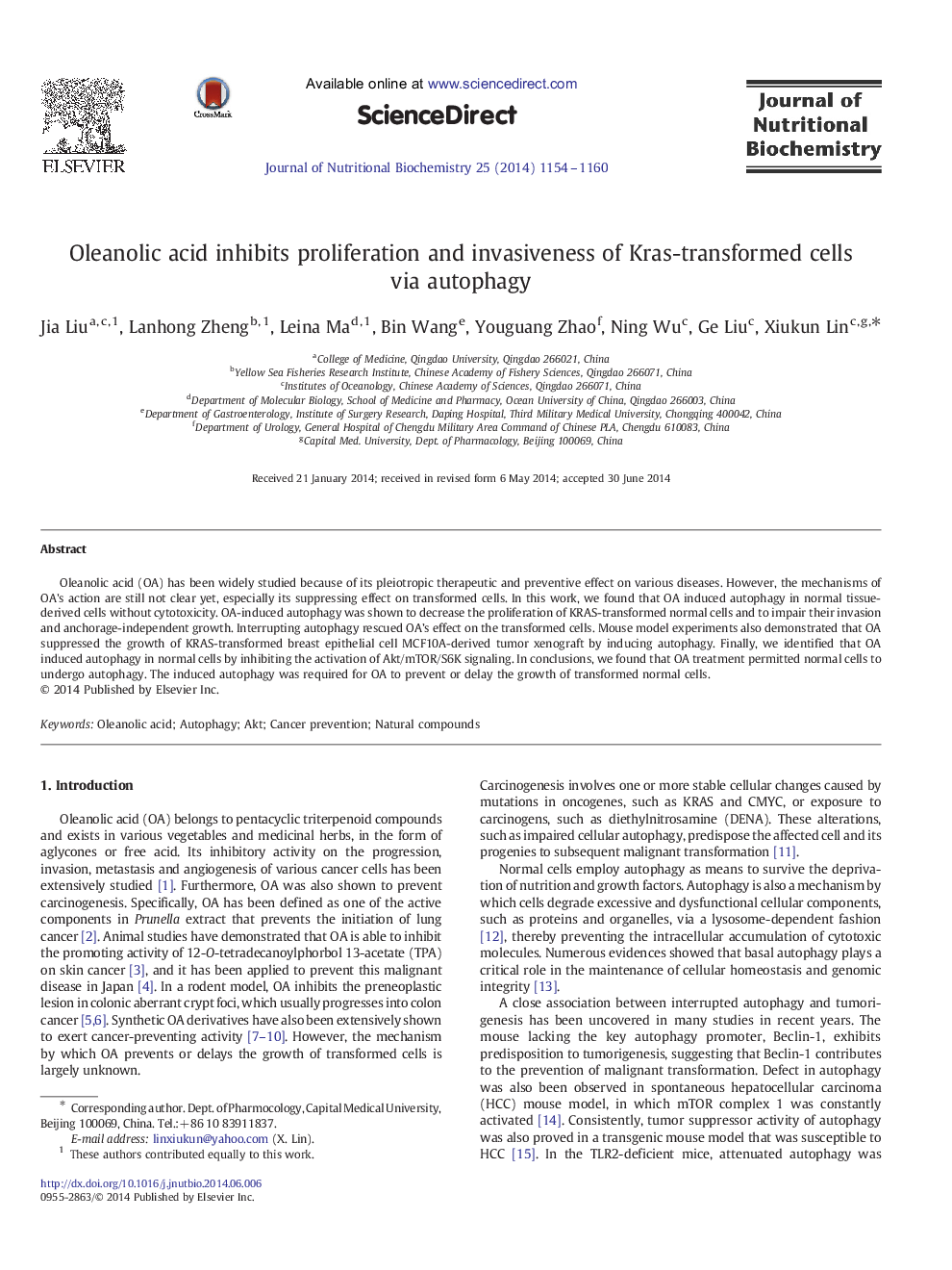| Article ID | Journal | Published Year | Pages | File Type |
|---|---|---|---|---|
| 8337058 | The Journal of Nutritional Biochemistry | 2014 | 7 Pages |
Abstract
Oleanolic acid (OA) has been widely studied because of its pleiotropic therapeutic and preventive effect on various diseases. However, the mechanisms of OA's action are still not clear yet, especially its suppressing effect on transformed cells. In this work, we found that OA induced autophagy in normal tissue-derived cells without cytotoxicity. OA-induced autophagy was shown to decrease the proliferation of KRAS-transformed normal cells and to impair their invasion and anchorage-independent growth. Interrupting autophagy rescued OA's effect on the transformed cells. Mouse model experiments also demonstrated that OA suppressed the growth of KRAS-transformed breast epithelial cell MCF10A-derived tumor xenograft by inducing autophagy. Finally, we identified that OA induced autophagy in normal cells by inhibiting the activation of Akt/mTOR/S6K signaling. In conclusions, we found that OA treatment permitted normal cells to undergo autophagy. The induced autophagy was required for OA to prevent or delay the growth of transformed normal cells.
Related Topics
Life Sciences
Biochemistry, Genetics and Molecular Biology
Biochemistry
Authors
Jia Liu, Lanhong Zheng, Leina Ma, Bin Wang, Youguang Zhao, Ning Wu, Ge Liu, Xiukun Lin,
